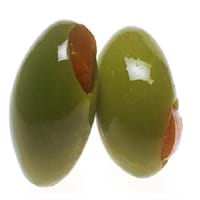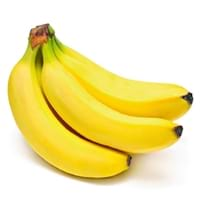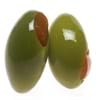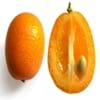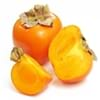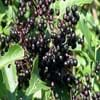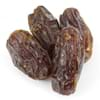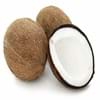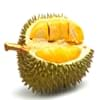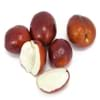Health Benefits
Cancer prevention, Helps in cartilage regeneration, Prevents macular degeneration, Treatment of alzheimer's disease
Cancer prevention, Diarrhea treatment, Muscle pain relief, Piles treatment, Prevents constipation, Skin cleansing, Ulcer treatment
General Benefits
Anti oxidant properties, Anti-inflammatory properties, Boosts immune system, Controls blood pressure, Digestive aid, Maintains healthy cholesterol level
Controls blood pressure, Digestive aid, Maintains healthy cholesterol level, Strengthens bones
Skin Benefits
Hydrates skin, Skin rejuvenation, Treatment of skin diseases
Anti-aging benefits, Hydrates skin, Skin rejuvenation
Hair Benefits
Acts as moisturizer, Good conditioner, Regulates hair growth
Prevents hair loss, Shiny hair, Softening mask
Allergy Symptoms
NA
Abdominal pains, Decrease in blood pressure, Dizziness, Hives, Itching of mouth, Lightheadedness, Swelling, Swelling of mouth, tongue or lips, Weak or racing pulse, Wheezing
Side Effects
Affects blood glucose levels, Dizziness, Stomach pain
Headache, Intense headache, Tooth decay
Best Time to Eat
Hardly eaten raw, Olive oil is consumed for many purposes.
As a snack in the late afternoon, Don't consume at night and before bed, Eat the fresh ones, avoid mixing with any other foods, don't eat after meal.
Vitamin B5 (Pantothenic Acid)
Vitamin C (Ascorbic Acid)
Vitamin K (Phyllochinone)
Phytosterol
Not Available
Calories in Fresh Fruit with Peel
Calories in Fresh Fruit without Peel
Not Available
Calories in Frozen Form
Not Available
Type
Tree fruit
Berry, Tropical
Season
Spring, Summer
All seasons
Varieties
Manzanillo, Sevillano, Mission, Ascolano, Barouni, Gordal, Rubra and Picholine
Cavendish Bananas, Lady Finger Bananas, Pisang Raja, Williams Bananas and Cooking Bananas
Color
Black, Green, Purple, Yellow
Green, Yellow
Shape
Oval
Curving Cylinder
Origin
Eastern Mediterranean Region
Papua New Guinea
Soil Type
Well-drained
Well-drained
Climatic Conditions
Warm to hot climate
Warm
Facts about
- In ancient Greece, 1st eye shadow was made by adding olive oil in ground charcoal.
- The most expensive form of olive oil is Extra Virgin.
- Largest type of olive tree is known as donkey tree & smallest one is called bullet.
- As bananas contain potassium-40 which is radioactive isotope of potassium, bananas are radioactive.
- Bananas float in water.
- There are around 1000 varieties of bananas.
- Eating this fruit will cheer you up.
Other Countries
Algeria, Egypt, Greece, Italy, Morocco, Portugal, Syria, Tunisia, Turkey
Brazil, Cameroon, China, Colombia, Ecuador, Ghana, Indonesia, Philippines, Uganda
Top Importer
United States of America
Europe
Top Exporter
Italy
Ecuador
Botanical Name
Olea europaea
Musa acuminata and Musa balbisiana
Synonym
Not Available
Musa × dacca , Musa × sapidisiaca , Musa × sapientum
Subkingdom
Tracheobionta
Tracheobionta
Division
Magnoliophyta
Magnoliophyta
Class
Magnoliopsida
Liliopsida
Subclass
Rosidae
Liliidae
Order
Lamiales
Zingiberales
Species
O. europaea
M. acuminata , M. balbisiana
Generic Group
Olive
Banana
Difference Between Olive and Banana
We might think that Olive and Banana are similar with respect to nutritional value and health benefits. But the nutrient content of both fruits is different. Olive and Banana Facts such as their taste, shape, color, and size are also distinct. The difference between Olive and Banana is explained here.
The amount of calories in 100 gm of fresh Olive and Banana with peel is 115.00 kcal and 95.29 kcal and the amount of calories without peel is Not Available and 89.00 kcal respectively. Thus, Olive and Banana belong to High Calorie Fruits and High Calorie Fruits category.These fruits might or might not differ with respect to their scientific classification. The order of Olive and Banana is Lamiales and Zingiberales respectively. Olive belongs to Oleaceae family and Banana belongs to Musaceae family. Olive belongs to Olea genus of O. europaea species and Banana belongs to Musa genus of M. acuminata , M. balbisiana species. Beings plants, both fruits belong to Plantae Kingdom.
